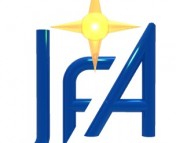- Title: Rating research risk
- Authors: A. Loeb
- First Author’s Institution: Harvard University
The latest issue of Nature magazine, the interdisciplinary scientific journal, features an essay in its Careers section with two innovative suggestions for young researches in physics and related fields: 1) that graduate students should establish a website to evaluate the riskiness of research fields in physics, in the spirit of credit rating agencies in the business world, and 2) that they should model the site on Astrobites!
The investment of research time in strong intellectual assets is crucial for graduate students who want to establish their careers on a good foundation. But not all young researchers are aware of the history that accompanies every research area. They often have to rely on word of mouth from their PhD adviser or colleagues for this information. What if the physicists could call on a ratings agency, not unlike a lender would do before deciding whether to offer credit?
Abraham Loeb advocates for the construction of a 'credit rating agency' for theories in physics.
The idea is that each research sub-field in physics would be given a risk-rating based on a variety of quantitative evaluation metrics. These might include the publication history on that topic in the arXiv, the number of recent faculty hirings in that field, or the number of successful NSF proposals. Young researches could then look up the risk-rating for a given field on a publicly-accessible website to help them inform their decision-making when choosing a research project.
So why does Loeb suggest that graduate students should take on this daunting task? He argues that senior scientists could be too invested in a particular theory to objectively evaluate its riskiness: “they could have a conflict of interest or be wishful thinkers,” he writes. Actually, he warns, it might be too-realistic an analogy to the realm of finance if senior scientists were in charge of picking which theories deserve the investment of researchers’ time and funding. Under such a system, Loeb envisions the development of “theory bubbles,” where a generation of physicists chase after an untenable theory and the field stagnates.
And what about modeling the proposed website after Astrobites? That’s actually a bit of an extrapolation from what Loeb wrote, but he does offer our website as a precedent for his proposal. Since graduate students are already quite busy with their coursework and research, it’s not obvious that they would have the resources to independently organize and operate a time-intensive public project. He points to Astrobites as an example that this can be done, and advocates for federal funding to support the students.
An earlier version of this essay appeared on the arXiv last year, including an explicit discussion of linear and non-linear forms for the credit rating model for physical theories. I recommend both articles as a thought-provoking exploration of the potential for borrowing ideas from economics to make research in physics more efficient, given that the reverse of this transfer of ideas is more traditional.





Abraham Loeb’s idea is very interesting. I support it. Such a rating system should be tried to see whether it helps the incoming researchers.